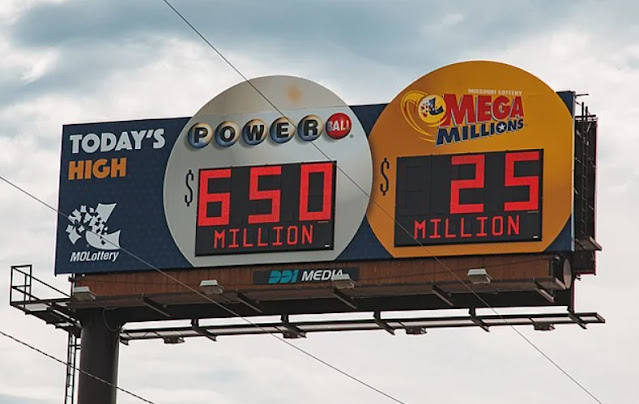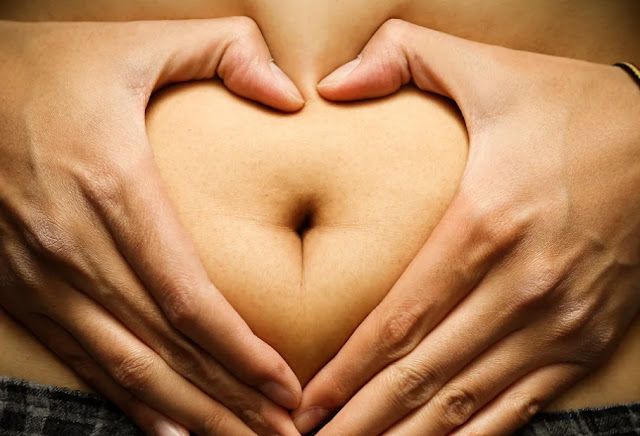William Henry Harrison - 9th President of USA
William Henry Harrison was born on February 9, 1773, in Berkeley County Virginia to a prestigious, wealthy, and influential family.
Harrison was launched to glory by mainly by saying nothing, thus earning the title 'General Mum' from his critics. The Whigs capitalized on a blunder by their Democratic opponents to propel Harrison to the Presidency.
By touting Harrison as a simple frontier Indian fighter used to living in a log cabin drinking cider, the propaganda transformed the Virginia aristocrat into a poor farmer. In direct contrast to the Democratic candidate, Van Buren, an aristocrat used to sipping champagne. Seldom has propaganda paid off so well.
William was commissioned an ensign in the infantry. At the age of 18, he fought Indians on the frontier of the Northwest Territory. He became an aide to General "Mad Anthony" Wayne and was cited for bravery at the Battle of Fallen Timbers in 1794. He rose to the rank of captain before resigning from the army in 1798.
In Congress, he was successful in securing passage of the Land Act of 1800, which provided liberal credit to small frontier settlers. While not yet 30, young William was appointed to the post of Governor of the Indiana Territory. He served for 12 years, from 1801 to 1812. Securing this appointment was due mostly to the influence of his father, rather than the military or administrative talents he displayed.
The Indian confederation, led by two Shawnee warriors, Chief Tecumseh and his religious brother, The Shawnee Prophet, prevented further encroachment. Harrison was granted permission to attack the Indian confederacy in 1811. Before dawn on November 7th, the Indians made a surprise attack on the camp on Tippecanoe River.
After heavy fighting, Harrison defeated them but suffered several hundred dead or wounded. Harrison took credit for the military victory and acquired the title of "Old Tip". The Battle of Tippecanoe disrupted Tecumseh's Indian confederacy but failed to lessen Indian raids. By the spring of 1812, they were again terrorizing the frontier.
In September of 1813, Oliver Perry succeeded in defeating the British fleet on Lake Erie and Harrison's troops took the offensive. He regained Detroit on September 29th. On October 5, 1812, at the Battle of the Thames, north of Lake Erie, Harrison defeated the combined British and Indian forces and killed Tecumseh. The Indians scattered and were never again to offer serious resistance in what was now called the Northwest.
Harrison returned to Washington as a United States Senator in 1825, during which time he chaired the committee on military affairs. In 1828 he was appointed by President John Adams as Minister to Colombia only to be recalled by Andrew Jackson.
White in the South, Daniel Webster in Massachusetts, and Harrison in the remaining northern and western states. Although Van Buren won that election, Harrison carried seven states and demonstrated his widespread appeal as a military hero with no political opinions that would alienate the people. Harrison continued to mount a campaign among war veterans and Whig party leaders for the next three years. In December 1839, success was Harrison's.
The Whig convention chose Harrison as its candidate. With hopes of winning Southern votes, the party nominated John Tyler of Virginia for the Vice Presidency. One of the greatest of American political campaign slogans was born as the delegates of the convention cheered "Tippecanoe and Tyler Too."
The Inaugural Address of William Henry Harrison was one of the longest in history. He chose Daniel Webster to edit it. Webster had reason to be pleased, for while Harrison was nationalistic in his outlook, he emphasized in his Inaugural that he would be obedient to the will of the people as expressed through Congress. Harrison rewarded Webster by appointing him Secretary of State.
The presidential term to which Harrison had ascended was the shortest in history. One short month after he took office, Harrison contracted a cold which developed into pneumonia. He died in Washington on April 4, 1841. He was the first American President to die in office.
BIRTH - February 9, 1773, at Berkeley Plantation, Charles City County, Virginia
MOTHER - Elizabeth Bassett
FATHER - Benjamin Harrison
SISTERS - Elizabeth, Lucy, and Sarah
BROTHER - Benjamin and Carter
MARRIAGE - Anna Tuthill Symmes on November 25, 1795 in North Bend, Ohio
CHILDREN - Elizabeth Bassett, John Cleves Symmes, Lucy Singleton, William Henry, John Scott, Benjamin, Mary Symmes, Carter Bassett, Anna Tuthill and James Findlay
HOME - Grouseland, Vincennes, Indiana
EDUCATION - Hampden-Sydney College, Virginia, (1787-1790) Did not finish and receive a degree
RELIGION - Episcopalian
PRE-PRESIDENCY PROFESSION - Soldier and Politician
MILITARY SERVICE
POLITICAL PARTY - Whig
INAUGURATION
William Henry Harrison Family
His father, Benjamin Harrison, was a signer of the Declaration of Independence and governor of Virginia from 1781 to 1784. Harrison is remembered mainly for his military career that included a victory over the Shawnee Indians in the Battle of Tippecanoe.Harrison was launched to glory by mainly by saying nothing, thus earning the title 'General Mum' from his critics. The Whigs capitalized on a blunder by their Democratic opponents to propel Harrison to the Presidency.
By touting Harrison as a simple frontier Indian fighter used to living in a log cabin drinking cider, the propaganda transformed the Virginia aristocrat into a poor farmer. In direct contrast to the Democratic candidate, Van Buren, an aristocrat used to sipping champagne. Seldom has propaganda paid off so well.
William Henry Harrison Education
Harrison was educated at Hampden-Sydney College, first studying the classics and history. Later he studied medicine in Richmond and Philadelphia. With his father's death in 1791, he left his studies and joined the army.William was commissioned an ensign in the infantry. At the age of 18, he fought Indians on the frontier of the Northwest Territory. He became an aide to General "Mad Anthony" Wayne and was cited for bravery at the Battle of Fallen Timbers in 1794. He rose to the rank of captain before resigning from the army in 1798.
William Henry Harrison Career
After his resignation, Harrison moved to North Bend, Ohio, and entered politics. He was appointed by President John Adams as Secretary of the Northwest Territory and was its first delegate to Congress in 1799. He helped obtain legislation that divided the Northwest Territory into the Ohio and Indiana Territories.In Congress, he was successful in securing passage of the Land Act of 1800, which provided liberal credit to small frontier settlers. While not yet 30, young William was appointed to the post of Governor of the Indiana Territory. He served for 12 years, from 1801 to 1812. Securing this appointment was due mostly to the influence of his father, rather than the military or administrative talents he displayed.
Governor William Henry Harrison
Harrison's main objective as Governor was to obtain title to Indian lands in order that settlers could move forward into the wilderness. The threat against the settlers became serious in 1809. Harrison was responsible for defending the settlements as the Indians retaliated.The Indian confederation, led by two Shawnee warriors, Chief Tecumseh and his religious brother, The Shawnee Prophet, prevented further encroachment. Harrison was granted permission to attack the Indian confederacy in 1811. Before dawn on November 7th, the Indians made a surprise attack on the camp on Tippecanoe River.
After heavy fighting, Harrison defeated them but suffered several hundred dead or wounded. Harrison took credit for the military victory and acquired the title of "Old Tip". The Battle of Tippecanoe disrupted Tecumseh's Indian confederacy but failed to lessen Indian raids. By the spring of 1812, they were again terrorizing the frontier.
William Henry Harrison Achievements
By the outbreak of the War of 1812, Harrison had won many military laurels and was given command of the Army in the Northwest with the rank of brigadier general. With Lake Erie and Detroit under British control, Harrison settled his army at Fort Meigs and withstood two sieges by the British and the Indians.In September of 1813, Oliver Perry succeeded in defeating the British fleet on Lake Erie and Harrison's troops took the offensive. He regained Detroit on September 29th. On October 5, 1812, at the Battle of the Thames, north of Lake Erie, Harrison defeated the combined British and Indian forces and killed Tecumseh. The Indians scattered and were never again to offer serious resistance in what was now called the Northwest.
William Henry Harrison Army Resignation
Harrison resigned from the army in May of 1814 to returned to civilian life in North Bend. He immersed himself once again in politics and for two years consistently sought public office. He represented his congressional district in Washington from 1816 to 1819 and served one term in the Ohio Senate from 1819 to 1821.Harrison returned to Washington as a United States Senator in 1825, during which time he chaired the committee on military affairs. In 1828 he was appointed by President John Adams as Minister to Colombia only to be recalled by Andrew Jackson.
William Henry Harrison 9th President
The bizarre political campaign of 1840 through which Harrison attained the presidency is that wherein his fame lies. When in 1836, the Whig party was unable to agree on a single presidential nominee to challenge Democratic candidate Martin Van Buren, three candidates ran, Hugh L.White in the South, Daniel Webster in Massachusetts, and Harrison in the remaining northern and western states. Although Van Buren won that election, Harrison carried seven states and demonstrated his widespread appeal as a military hero with no political opinions that would alienate the people. Harrison continued to mount a campaign among war veterans and Whig party leaders for the next three years. In December 1839, success was Harrison's.
The Whig convention chose Harrison as its candidate. With hopes of winning Southern votes, the party nominated John Tyler of Virginia for the Vice Presidency. One of the greatest of American political campaign slogans was born as the delegates of the convention cheered "Tippecanoe and Tyler Too."
The Inaugural Address of William Henry Harrison was one of the longest in history. He chose Daniel Webster to edit it. Webster had reason to be pleased, for while Harrison was nationalistic in his outlook, he emphasized in his Inaugural that he would be obedient to the will of the people as expressed through Congress. Harrison rewarded Webster by appointing him Secretary of State.
The presidential term to which Harrison had ascended was the shortest in history. One short month after he took office, Harrison contracted a cold which developed into pneumonia. He died in Washington on April 4, 1841. He was the first American President to die in office.
More William Harrison Facts
NICKNAME - Old TippecanoeBIRTH - February 9, 1773, at Berkeley Plantation, Charles City County, Virginia
MOTHER - Elizabeth Bassett
FATHER - Benjamin Harrison
SISTERS - Elizabeth, Lucy, and Sarah
BROTHER - Benjamin and Carter
MARRIAGE - Anna Tuthill Symmes on November 25, 1795 in North Bend, Ohio
CHILDREN - Elizabeth Bassett, John Cleves Symmes, Lucy Singleton, William Henry, John Scott, Benjamin, Mary Symmes, Carter Bassett, Anna Tuthill and James Findlay
HOME - Grouseland, Vincennes, Indiana
EDUCATION - Hampden-Sydney College, Virginia, (1787-1790) Did not finish and receive a degree
RELIGION - Episcopalian
PRE-PRESIDENCY PROFESSION - Soldier and Politician
MILITARY SERVICE
- Enlisted in The US Army in 1781 as an ensign
- US Army Lieutenant then promoted to Captain; Resigned in 1787
- General in War of 1812 and became a national hero at the Battle of the Thames
POLITICAL LIFE
- Secretary of the North-west Territory (1798-(1799)
- Non-voting delegates to the US House
- Governor of Indiana Territory (1800-1812)
- Us Representative (1816-1819)
- Ohio state senator (1819-1821)
- US Senator (1825-1828)US minister to Colombia (1828-1829)
POLITICAL PARTY - Whig
INAUGURATION
- Commenced on March 4, 1841, at the Capitol in Washington D.C. at the age of 68
- William Henry Harrison - Inaugural Address
William Harrison Administration
PRESIDENCY - One term (March 4, 1841-April 4, 1841)VICE PRESIDENT - John Tyler (1841, March-April)
FIRST LADY - Anna Harrison (1841, March 4-April 4)
SUPREME COURT APPOINTMENTS - None
William Harrison Cabinet
SECRETARY OF STATE - Daniel Webster (1841-1843)SECRETARY OF THE TREASURY - Thomas Ewing (1841, March-September)
SECRETARY OF WAR - John Bell (1841, March-September
ATTORNEY GENERAL - John J. Crittenden (1841, March-September)
POSTMASTER GENERAL - Francis Granger (1841, March-September)
SECRETARY OF THE NAVY - George E. Badger (March-September)
POST PRESIDENCY LIFE - President Harrison Died in office
DEATH - April 4, 1841, in Washington D.C. at the age of 68
BURIAL PLACE - William Henry Harrison State Park, North Bend Ohio
LANDMARKS
- Berkely Plantation, Charles City County, Va. (birthplace)
- Grouseland, Vincennes, Ind. (family home)
- Harrison Tomb State Memorial, North Bend Ohio









